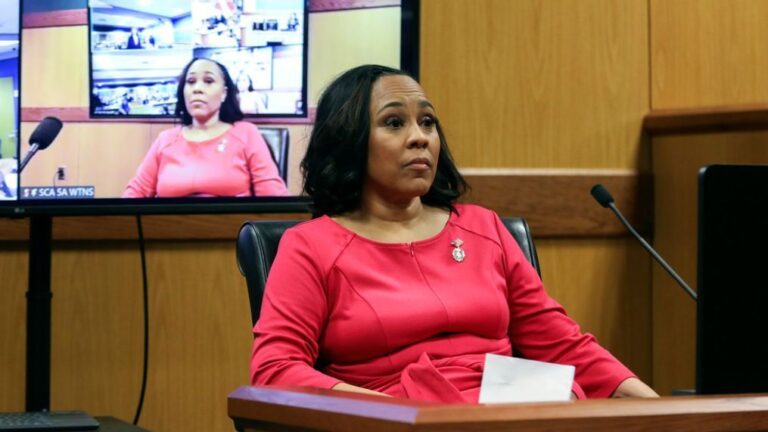Georgia’s Court of Appeals issued a significant ruling on Thursday, disqualifying Fulton County District Attorney Fani Willis from the high-profile 2020 election prosecution. The case is based on accusations against President-elect Donald Trump and his co-defendants and has attracted national attention.
Court’s Decision and Its Impact
Trump and several of his co-defendants have been seeking to disqualify Willis, a Democrat, from the case over a romantic relationship she previously had with Nathan Wade, the special prosecutor who she hired to assist with the handling of the case. The defendants argued that Willis financially benefited from the relationship with Wade, who defense attorneys say covered several vacations for the pair.
The court decided to dismiss Willis after arguments about her ability to be impartial. Critics said Willis’s prior statements and actions made them question her impartiality. The appeals court concurred, saying the plaintiff’s involvement could jeopardize the fairness of the proceedings. The ruling marks a critical moment in the legal challenges to the 2020 election.
Background on the Case
The inquiry is based on allegations of interference in Georgia’s 2020 presidential election results. Trump and his co-defendants are accused of trying to reverse certified election results. Willis had led the inquiry and filed charges, stressing the need to hold people accountable for interceding in election-related efforts.
Public Response and Political Consequences
Reactions to the ruling have varied across the political spectrum. Trump supporters praised the decision as a win against a politically motivated prosecution. However, others cautioned about what delays could mean for accountability among key figures.
The ouster of a prosecutor in such a high-profile case reflects the escalating tensions surrounding investigations into the election system’s integrity. Legal experts say the trajectory of the case could change dramatically with new leadership atop the prosecution team.
The development underscores continuing controversies over justice, neutrality, and accountability in politically charged inquiries. As the nation pays close attention, the case has served as a flashpoint in election security and political accountability discussions.

